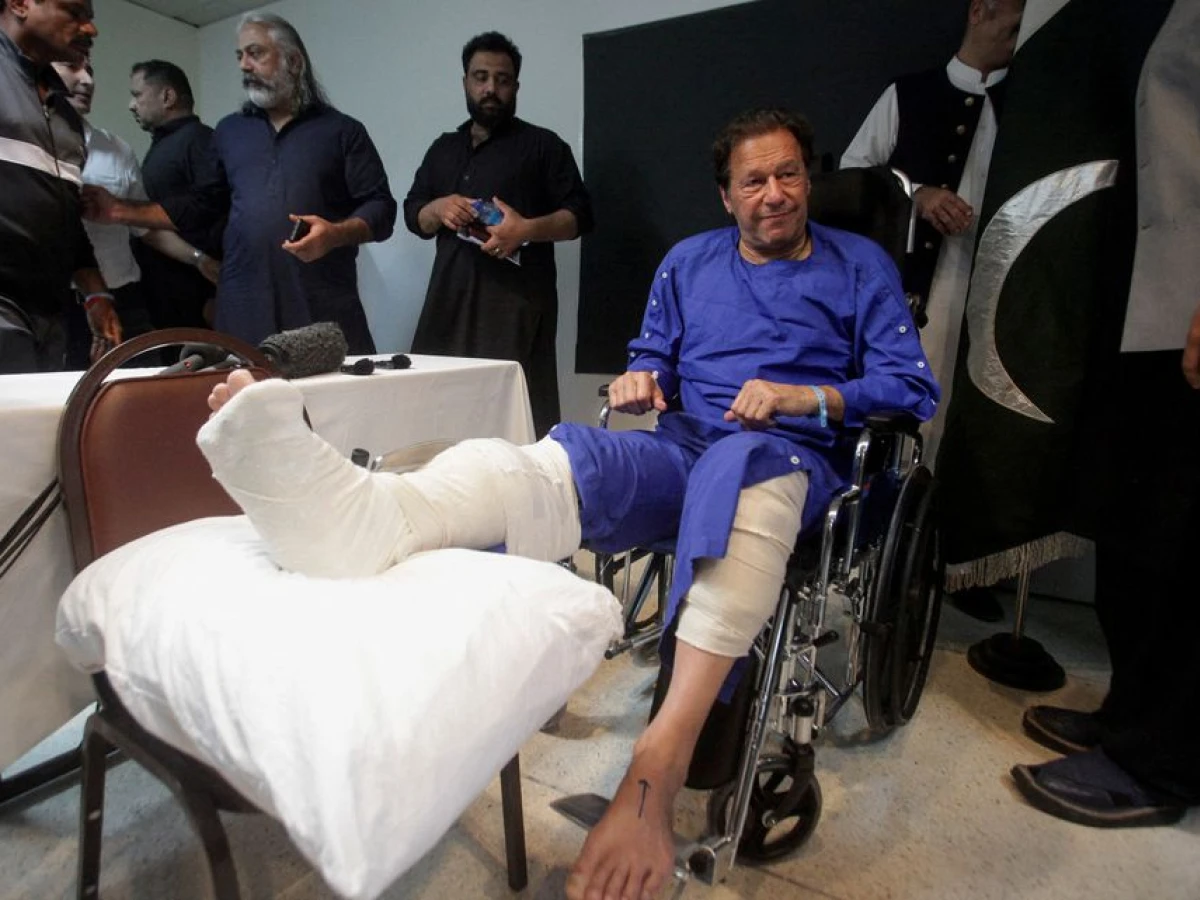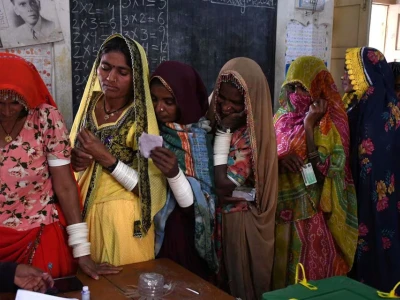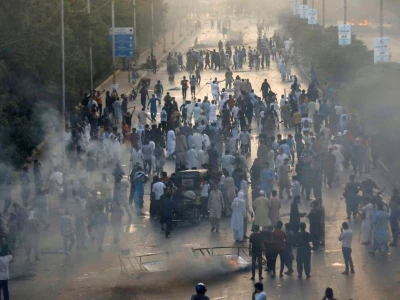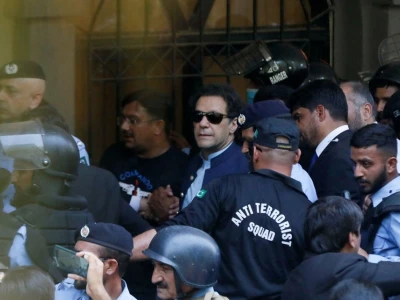
Pakistan's Imran Khan relaunches political march after surviving gun attack
In the video address, Khan rejected the police version.
ISLAMABAD, Nov 10 (Reuters) - Pakistani former prime minister Imran Khan told supporters via video-link on Thursday they should keep up an anti-government march, a week after he suffered wounds in a gun attack, and he dismissed a police report that a lone shooter tried to kill him.
The 70-year-old former cricket hero was wounded last Thursday in the shooting at a rally, part of a rolling march that he has led to press for a general election, since he was ousted in a parliament vote in April.
Khan addressed a few hundred workers who relaunched the march in the eastern city of Wazirabad, the same town where the attacker fired several shots, wounding him and 10 others. One of the injured people later died.
Heavy police contingents were deployed for the security of the marchers, police official Ghulam Nabi said.
"Our march wouldn't stop," Khan said, adding the protest will instead gather strength as it closes on the capital Islamabad.
Khan has been leading public rallies to demand snap polls since his ouster by a joint opposition.
Khan said nothing could deter him from going ahead as long as the snap polls were not called, adding that he would join the protest march in the garrison city of Rawalpindi, adjacent to Islamabad, in some days.
"I will not back off as long as I'm alive," he said.
His successor Prime Minister Shehbaz Sharif has rejected the demand, saying the election will be held as scheduled later next year.
A police report released last week said a man identified as Mohammad Naveed acted alone when he took out a pistol and started shooting while Khan waved at his supporters at the event last week.
In the video address, Khan rejected the police version. He said at least two people executed what he said was a well planned attack. He did not provide evidence to back up his claim, but pointed to occasions when he spoke at his public rallies in September about a suspected plot.
Interior Minister Rana Sanaullah has said the shooter was a "self motivated and committed person" who carried out the attack on religious basis.
The former premier instead alleges that Sanaullah, the prime minister and a Pakistan military general from the country's spy agency, Inter Services Intelligence (ISI), were involved in the assassination attempt.
The government and the military have strongly denied the allegations.




